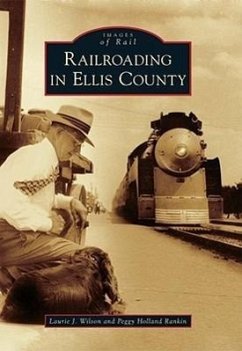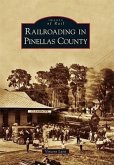The Houston and Texas Central Railroad made its way through eastern Ellis County in 1871 and played an integral role in the founding of Ennis, Texas. Eventually, that community would be designated as a division point along the line. The H&TC's arrival also brought growth and prosperity to other communities on the line, including Alma, Garrett, Palmer, and Ferris. It made its mark on the area. The Waxahachie Tap was the vision of many of that city's earliest settlers. Within a decade of its completion in September 1879, Waxahachie's cotton production multiplied and the town would soon earn the moniker "Where Cotton Is King." Midlothian and its surrounding communities would never be the same once connected by the Chicago, Texas, and Mexican Central Railroad in 1881. The rail had arrived and Ellis County was transformed.
Hinweis: Dieser Artikel kann nur an eine deutsche Lieferadresse ausgeliefert werden.
Hinweis: Dieser Artikel kann nur an eine deutsche Lieferadresse ausgeliefert werden.








